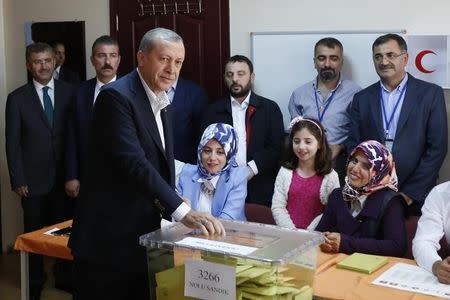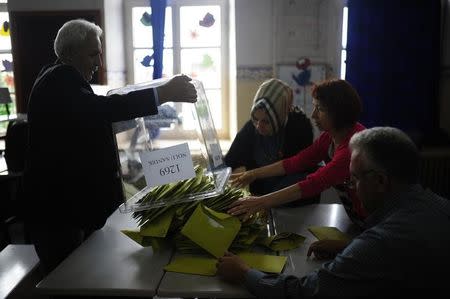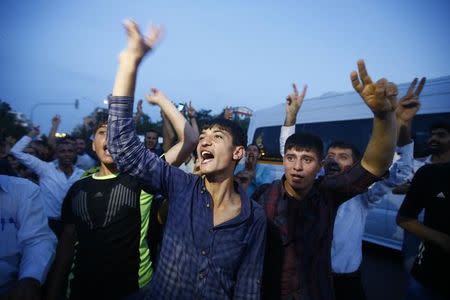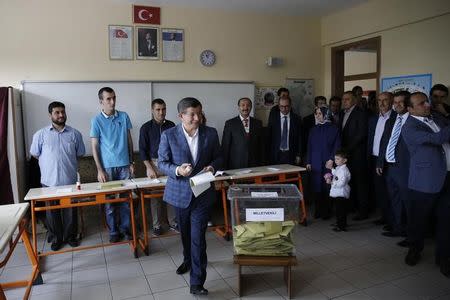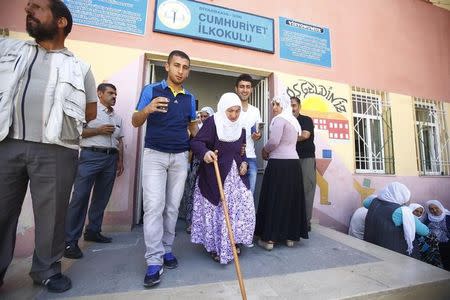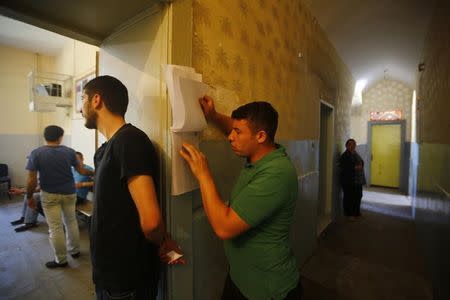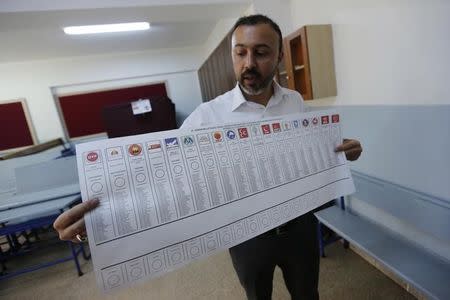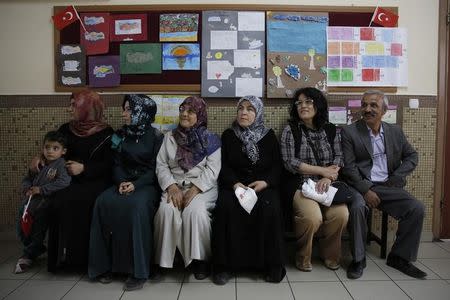Erdogan's AKP may struggle to govern Turkey alone as pro-Kurdish party advances
By Ercan Gurses ANKARA (Reuters) - Turkey's ruling AK Party may struggle to form a stable government alone, partial results from a parliamentary election indicated on Sunday, dealing a significant blow to President Tayyip Erdogan's ambitions of assuming greater powers. With more than 80 percent of ballots counted, the AKP was on 42.1 percent of the vote, according to broadcaster CNN Turk, a result likely to leave it short of an overall majority for the first time since its creation more than a decade ago. "We expect a minority government and an early election," a senior AKP official told Reuters on condition of anonymity. The pro-Kurdish Peoples' Democratic Party (HDP) was on track to take more than 11 percent of the vote, according to CNN Turk, enough to clear the threshold to enter parliament for the first time. The results could still change significantly, with counting not yet completed in the largest cities. Erdogan, Turkey's most popular but also divisive modern leader, had hoped for a crushing victory for the AKP he founded, to allow it to change the constitution and hand him broad executive powers. The AKP's failure to win an overall majority could mark an end to 12 years of uninterrupted stable single-party rule and would be a setback for both Erdogan and Prime Minister Ahmet Davutoglu. The two men portrayed the election as a choice between a "new Turkey" and a return to a history marked by short-lived coalition governments, economic instability and coups by a military whose influence Erdogan has now reined in. But the partial result indicated that the HDP had succeeded in widening its appeal beyond its Kurdish core vote to centre-left and secularist elements disillusioned with Erdogan. The HDP is now likely to play a significant role, particularly after a bombing on Friday killed two people and wounded at least 200 at a party rally in the mainly Kurdish southeast. Turkey's lira has been hammered this year on concerns about Erdogan's growing authoritarianism and worries about political meddling in monetary policy. Many investors had said a weakened single-party AKP government would be their "best case" scenario as it would avoid the uncertainty of a coalition but would also avoid handing Erdogan greater power. (Additional reporting by Daren Butler and Ayla Jean Yackley in Istanbul, Humeyra Pamuk in Diyarbakir, Jonny Hogg and Tuvan Gumrukcu in Konya; Writing by David Dolan and Nick Tattersall; Editing by Kevin Liffey)

